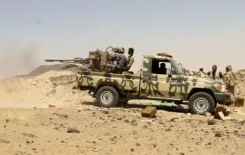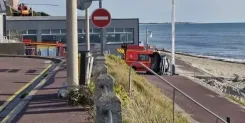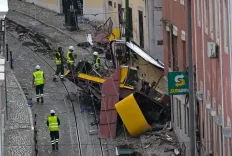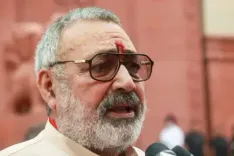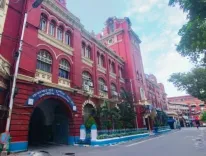Is Violence Against the Transgender Community Rising in Pakistan?
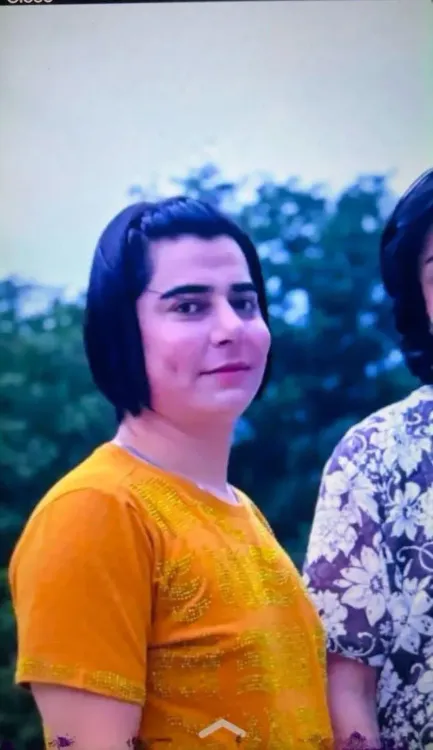
Synopsis
Key Takeaways
- Significant rise in violence against transgender individuals in Pakistan.
- Recent murder of Asady highlights ongoing danger.
- 158 reported killings since 2009 in KP.
- Community faces social rejection and limited rights.
- Urgent call for justice and protective measures.
Islamabad, July 16 (NationPress) A prominent minority rights organization has drawn attention to the alarming rise in violence targeting the transgender community in Pakistan.
In a heartbreaking revelation from Khyber Pakhtunkhwa (KP) province, the Voice of Pakistan Minority (VOPM) reported that on July 8, a transgender woman named Taj Muhammad, affectionately known as 'Asady', was brutally murdered in her Peshawar apartment located in the Tehkal area. The report indicates that Asady, approximately 32-33 years old, sustained multiple gunshot wounds to her upper body and head, a heinous act that has deeply unsettled the transgender community.
"This senseless murder is not an isolated case. It is part of a horrifying trend that is showing no signs of abating. Already, eight transgender individuals have lost their lives in KP in 2025 alone. Since 2009, the death toll has tragically reached 158, with over 1,800 reported incidents of violence against transgender individuals," stated the VOPM.
"These figures are not mere statistics; they embody lives — individuals who, just like everyone else, deserve dignity, respect, and protection. Each murder is a painful reminder of the dangerous reality transgender individuals face, living in fear and anxiety," the statement elaborated.
The minority rights group emphasized that Asady’s death transcends being just another statistic; it represents a human life extinguished by senseless violence.
"Her family, grappling with unbearable sorrow, must navigate the depths of loss, while the community she belonged to is left questioning the ongoing violence. The police registered an FIR on that very day, with Asady’s brother, Bahadur Khan, stepping up as the complainant," the VOPM conveyed.
Arzoo Khan, the Executive Director of the Manzil Foundation and the Provincial President for Transgenders in KP, expressed her heartfelt condolences and indignation.
"We vehemently condemn the murders within the transgender community in KP," VOPM quoted Arzoo. She confirmed that Asady's family received her body post-mortem.
According to VOPM, despite the ongoing investigation, the motive for this crime remains uncertain, adding to the ever-present fear and uncertainty that looms over the transgender community in the area.
The minority rights organization noted that just a week prior to Asady's murder, another transgender woman, 'Titli', was killed in Peshawar’s Gulbahar area.
While police hastily claimed to have resolved the case, Arzoo Khan disputed these assertions, highlighting inconsistencies in the investigation and arrests.
"Police have not apprehended the primary suspects. They seem to be trying to create a favorable image by arresting friends and family of the accused," she stated.
"The police's management of these cases only intensifies the mistrust within the transgender community, who feel that justice is perpetually delayed, if not denied," VOPM stressed.
"Violence against transgender individuals has regrettably become a recurrent narrative. In May, Shahab alias 'Wafa' was shot in the head and killed in Dargai, Malakand, while returning from a wedding. In June, 'Zaibi' was murdered during a wedding event in Abbottabad, and the cycle of violence continues," it added, detailing numerous acts of violence against transgender individuals in KP.
The minority rights group asserted that these killings are not isolated events; they are indicative of a growing epidemic of hate and intolerance directed at a community that is already marginalized and voiceless in many respects.
The VOPM further remarked that the transgender community in KP faces a dual threat; on one side, they encounter social rejection, limited access to healthcare, education, and job opportunities, while on the other, they endure physical violence and death simply for existing.
"They are treated as outcasts, relegated to the fringes of society, and forced to live in constant fear. As the state fails to safeguard them, their cries for assistance become increasingly urgent, demanding not only justice but also safety — a fundamental human right that all people deserve," the rights group concluded.


